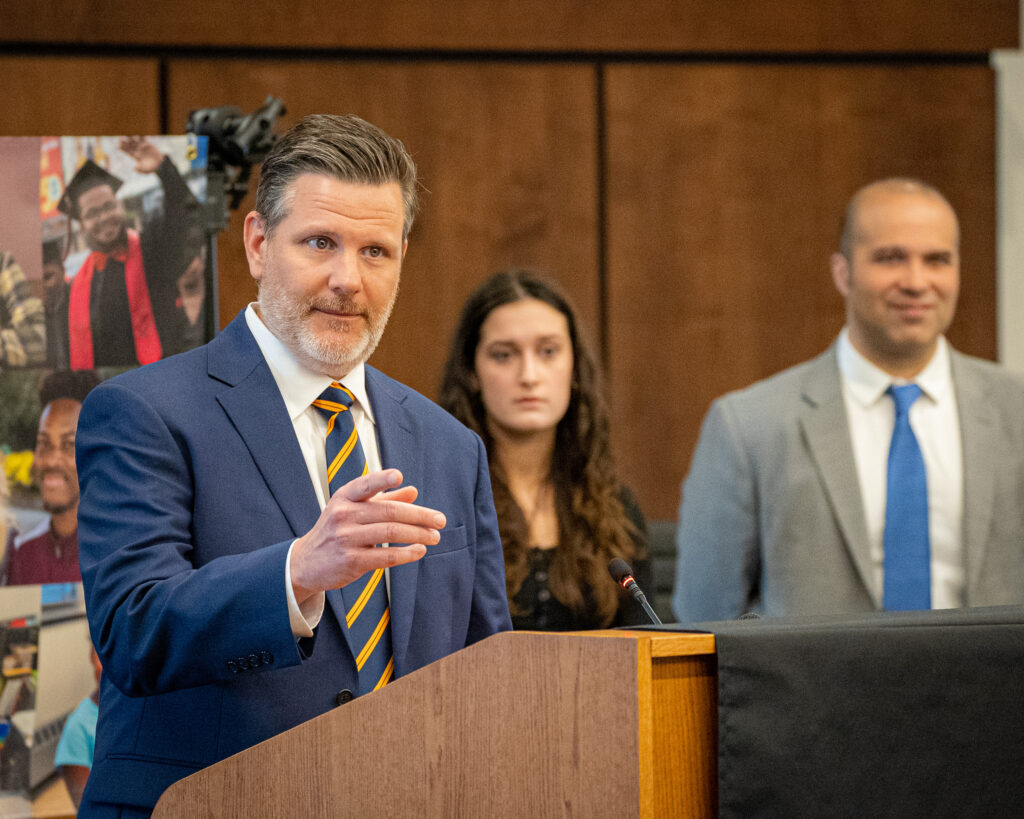
As the state legislature considers Governor Shapiro’s proposed budget, and in the wake of the landmark Commonwealth Court school funding ruling, The Pennsylvania League of Urban Schools (PLUS caucus of the Pennsylvania Association of School Administrators) hosted simultaneous press conferences across the state, calling for increased funding and charter reform. The School District of Lancaster on Tuesday hosted the superintendents of Pottstown and Reading School Districts.
“In February, the School District of Lancaster was one of seven school districts to win a resounding victory in Commonwealth Court, declaring that education is a fundamental right guaranteed by the Pennsylvania Constitution to all children—and that this right has been denied in low-wealth districts like ours,” said Matthew Przywara, the School District of Lancaster’s acting superintendent. “PLUS is calling on the state legislature to place an urgent priority on sufficient and sustainable funding for public schools, as well as for charter funding reform.”
One in seven of Pennsylvania’s K -12 public school children attend an urban school. The PLUS caucus is comprised of 29 different urban school districts, including the School District of Philadelphia.
Over the last 10 years, mandated costs to school districts (particularly charter tuition, pension costs, and special education costs) have far outpaced state and federal funding, creating a $3.7 million budget gap for the state’s schools. Urban schools are among those hit hardest.
“Students living in an urban setting, like Lancaster city have a higher rate of poverty and trauma, which in turn sends them to school with different barriers and at a more concentrated rate than other public schools may experience,” said Amanda Aikens, a teacher and instructional coach at King Elementary.”
Pennsylvania ranks 44th in the nation in the proportion of state funding for schools, and has the second worst school funding gap in the nation when it comes to wealthy versus poor districts. Research shows it costs more to educate students living in poverty since they face many challenges.
PLUS districts have used recent pandemic and “Level Up” state funding for critical infrastructure and HVAC repairs, renovations, the purchase of technology and equipment, as well as to add staff such as mental health counselors, school counselors, teachers, and aides.
“With the increase of funding in the last year, we have done phenomenal things for our students,” said Dr. Jennifer Murray, superintendent of Reading School District. She listed accelerated learning opportunities, paid internships for students, school security, and more social workers as investments Reading made with “Level Up” funding.
PLUS is calling for state legislators to enact true charter and cyber-charter funding reform. Charter schools are funded by state and local taxes, but local school boards have no oversight. By law up to 25% of charter school teachers can be uncertified, and charters don’t have to account for how they’re using their tuition payments from public school districts.
“In some instances, these charters contract with for-profit private corporations that are making millions off money supplied by taxpayers,” said Stephen Rodriguez, superintendent of Pottstown School District. “The funding system is entirely unfair, and syphons critical dollars from public schools.”
Public schools are also required to send cyber-charter schools the same tuition payment for students that they send to brick and mortar schools, but the cost of educating a cyber charter student is significantly less. Many public schools are operating their own cyber schools at a much more efficient rate than cyber-charters and they are seeing greater academic results. The performance of 13 of the state’s 14 cyber-charters is among the lowest 5% of all schools in the state.
PLUS leaders say they are eager to partner with local legislators to advocate for legislation that reforms the oversight and funding of charter and cyber-charter schools. At the press conference, they are calling for parents, staff, and community members to contact their legislators and share the concerns about charter funding as well as general funding for urban schools.
